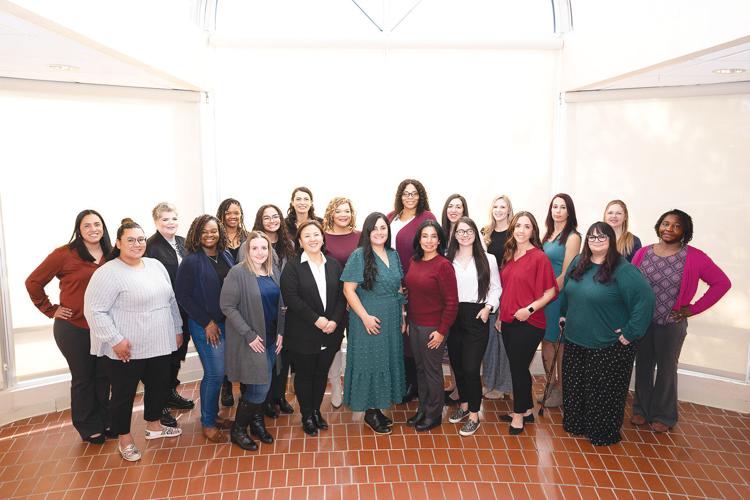The Resource, Empower, Advocate, Connect and Heart, or REACH, Study is being conducted at the Great Place with the intent to facilitate improved quality of life for active-duty Army spouses.
Elisa Borah, director and associate professor of the Institute for Military and Veteran Family Wellness with the University of Texas at Austin, studies ways to improve support for military families, spouses, service members and veterans which include social support and emotional and mental health.
“We try to design programs that are effective in supporting that population,” she said.
She and her team applied for a grant from the Department of Defense with the intent of expanding the peer support program to active-duty spouses. The program had been used with spouses of veterans. The DOD funded the project in the fall of 2022.
The organization began its research with Army spouses focus groups from multiple installations, meeting through Zoom in order to learn what topics should be covered in peer support group meetings.
“The peer support group is more about supporting each other,” Borah said. “It doesn’t mean we’re going to problem-solve everything. It’s more just coming together, learning how to support each other and giving everyone a place to go to meet with others and connect so they don’t feel alone.”
After adapting the program using the results from phase one, phase two is now being conducted at the People First Center. Twenty-four spouses from Fort Cavazos were trained in December 2023 to facilitate the groups as peer support leaders.
Borah said there is a growing understanding of the value of trained peers leading those who need support that extends beyond the military, which is why it was important to train Army spouses to lead the meetings.
“We train peers who are other military spouses to facilitate the support groups,” Borah explained. “They co-lead groups at the People First Center, and study staff are available to support them with anything they need. We meet with them weekly to talk through how the session went, what support they need, and any issues that we can help them with in their roles.”
Borah said the hypothesis is that the REACH Study will improve spouse’s reported quality of life, decrease anxiety and depression, if present, and increase their feeling of social support based on findings from her team’s work with veteran spouses.
“Once we analyze the results, my hope is that there will be positive outcomes, and we would write our report, publish articles, and report back to DOD that this program model was successful. We’ll report whatever we find. Hopefully, it improves mental health, social support, self-care, etc. I hope the Army will adopt it and want to disseminate it broadly across many installations.”
Borah is married to an Army veteran and said it’s very important to consider the needs of spouses as much as Soldiers.
“Spouses are so important to the Soldier’s quality of life and readiness,” she said. “They deal with a lot. They go along with everything that needs to happen for the service member’s career. They make sacrifices, they put a lot on hold. More and more, they are the ones making decisions with their partners whether to stay in the military. Especially around employment, quality of life, etcetera. If we think … about retention and recruitment into the military, we really need to pay attention to the spouses’ needs. That way, we’re not inadvertently losing people’s service because it doesn’t work for the family.
“Spouses want careers, and a good quality of life,” she continued. “We need to do more to make that happen or we are going to have a retention/recruitment problem that’s going to continue to grow. Family resiliency — the spouse is the key person holding all that together. We need to be doing everything we can to help them feel supported, feel connected, and have all of the resources they need.”
For more information on the study, visit https://imvfw.utexas.edu/research/reach/.
Borah said they are looking for more study participants. To apply, visit: https://redcap.link/reachpeerstudy.








